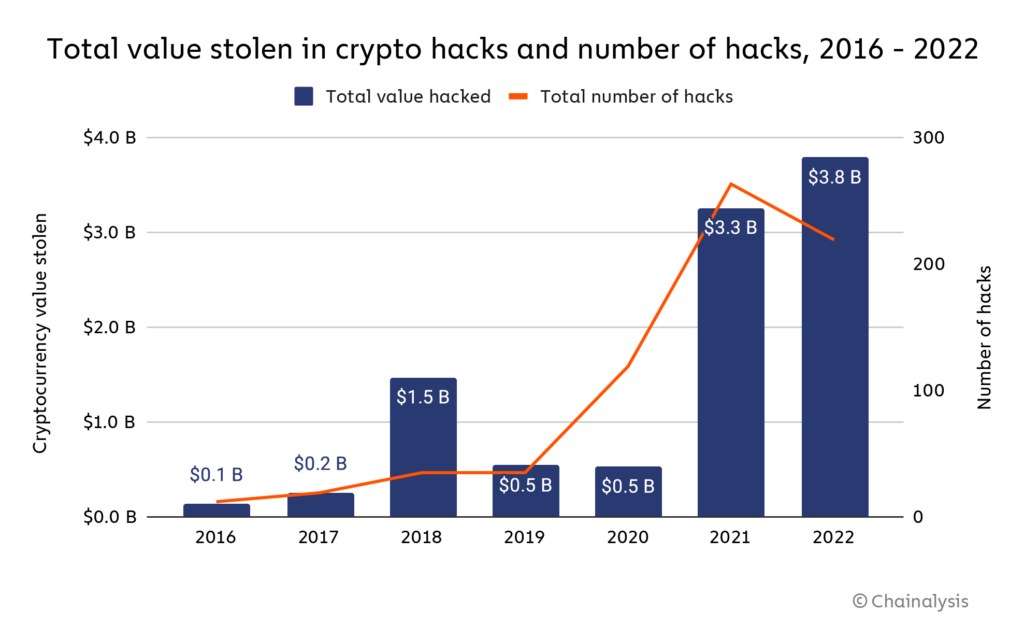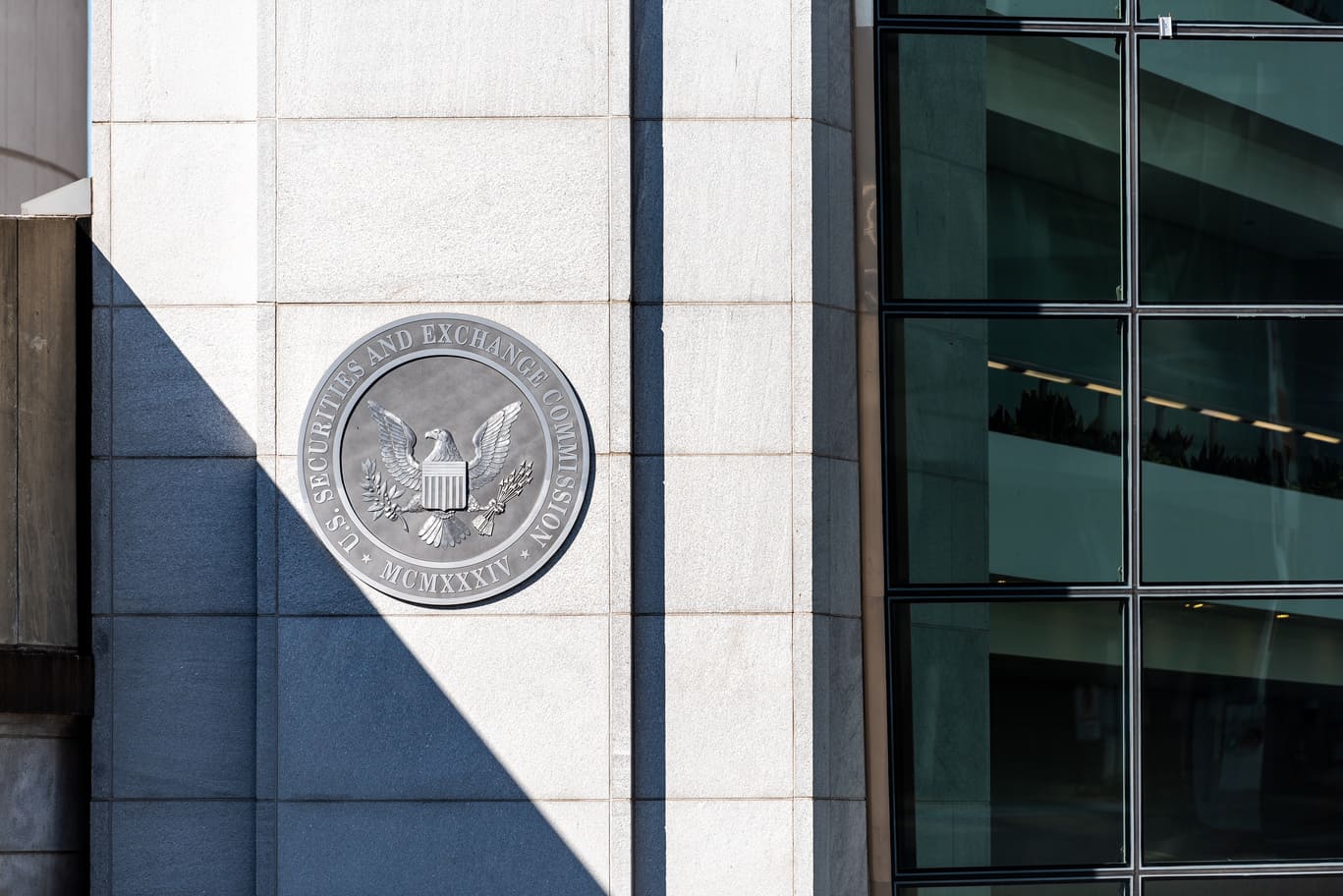
Record $3.8 Billion Stolen By Crypto Hackers in 2022
The majority of the stolen funds came from DeFi protocols and the attackers were primarily linked to North Korea.
2022 was the biggest year ever for crypto hacking, with $3.8 billion stolen from cryptocurrency businesses, a new report by Chainalysis reveals.
According to the research, hacking activity ebbed and flowed throughout the year, with huge spikes in March and October, the latter of which became the biggest single month ever for cryptocurrency hacking, as $775.7 million was stolen in 32 separate attacks.

The report finds that North Korea-linked hackers such as those in cybercriminal syndicate Lazarus Group have been by far the most prolific cryptocurrency hackers over the last few years. In 2022, they shattered their own records for theft, stealing an estimated $1.7 billion worth of cryptocurrency across several hacks we’ve attributed to them. For context, North Korea’s total exports in 2020 totalled $142 million worth of goods, so it isn’t a stretch to say that cryptocurrency hacking is a sizable chunk of the nation’s economy. Most experts agree the North Korean government is using these stolen to fund its nuclear weapons programs. Moreover, $1.1 billion of that total was stolen in hacks of DeFi protocols, making North Korea one of the driving forces behind the DeFi hacking trend that intensified in 2022.
1/ #DeFi protocols as victims accounted for 82.1% of all #cryptocurrency stolen by hackers — a total of $3.1 billion — up from 73.3% in 2021.
— Chainalysis (@chainalysis) February 1, 2023
In this 🧵we dive deeper into this👆and take a look at the role of North Korea-linked hackers.https://t.co/l1OJ9p5jEC https://t.co/f4IGk3gPhI pic.twitter.com/PaqcWQaBJX
Chainalysis reports hackers targeting cryptocurrency businesses are finding their biggest success on decentralized finance (DeFi). DeFi protocols as victims accounted for 82.1% of all cryptocurrency stolen by hackers - a total of $3.1 billion – up from 73.3% in 2021. And of that $3.1 billion, 64% came from cross-chain bridge protocols specifically. “The DeFi community generally isn’t demanding better security — they want to go to protocols with high yields. But those incentives lead to trouble down the road,” Halborn COO David Schwed told Chainalysis. “A big protocol should have 10 to 15 people on the security team, each with a specific area of expertise,” he added.





